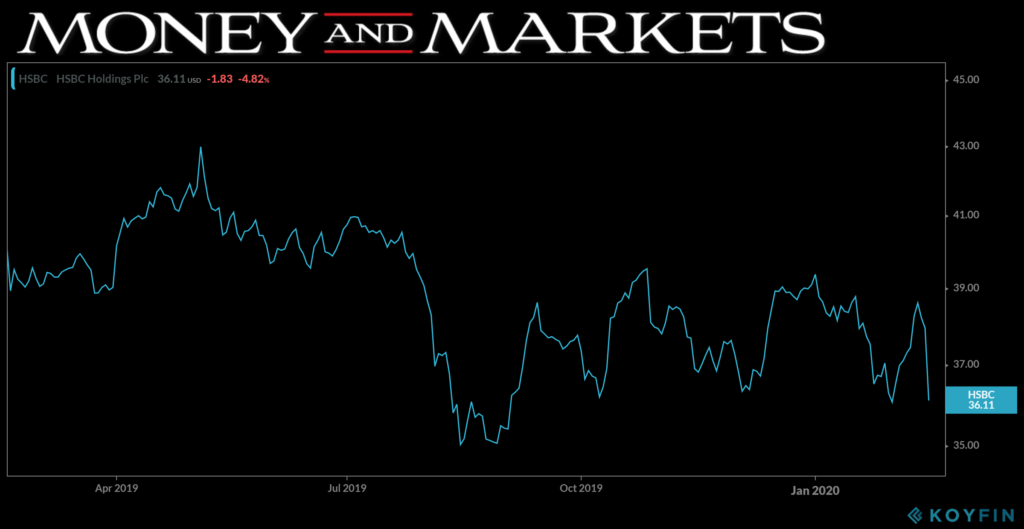HSBC, Europe’s largest bank by assets, announced a massive restructuring effort after falling well short of analyst expectations last year.
The bank’s pretax profits fell 32.9% to $13.35 billion, which was well short of Refinitiv’s $19.83 billion forecast. The bank took a $7.3 billion goodwill impairment in its European division that led to many of the losses.
Here is a breakdown of what a goodwill impairment actually is, per Investopedia:
- Goodwill impairment is an accounting charge that is incurred when the fair value of goodwill drops below the previously recorded value from the time of an acquisition.
- Goodwill is an intangible asset that accounts for the excess purchase price of another company based on its proprietary or intellectual property, brand recognition, patents, etc., which is not easily quantifiable.
Noel Quinn, HSBC interim chief, said the goodwill impairment “arose from an update to long-term economic growth assumptions, which impacted a number of our businesses” in a statement, according to CNBC. The bank recorded a pretax loss of $4.65 billion in its European business after the write-down.
As a result, HSBC (NYSE: HSBC) is undergoing a restructuring that includes reducing its investment banking division by cutting 35,000 jobs over three years from both its European and American operations. It is also reducing assets it holds by $100 billion. It will also reduce its number of U.S. retail branches and eliminate European stock trading.
HSBC has a large operation in Asia and Quinn said the ongoing coronavirus outbreak has created a significant problem for the bank.
“Since the start of January, the coronavirus outbreak has created significant disruption for our staff, suppliers and customers, particularly in mainland China and Hong Kong,” Quinn said.
“Depending on how the situation develops, there is the potential for any associated economic slowdown to impact our expected credit losses in Hong Kong and mainland China. Longer term, it is also possible that we may see revenue reductions from lower lending and transaction volumes, and further credit losses stemming from disruption to customer supply chains,” Quinn said.
HSBC stock sank on the news. Shares in the bank were down 5.5% by the closing bell Tuesday. It also lost 2.7% on the Hang Seng Index in Hong Kong, where it pulls a lot of weight.





